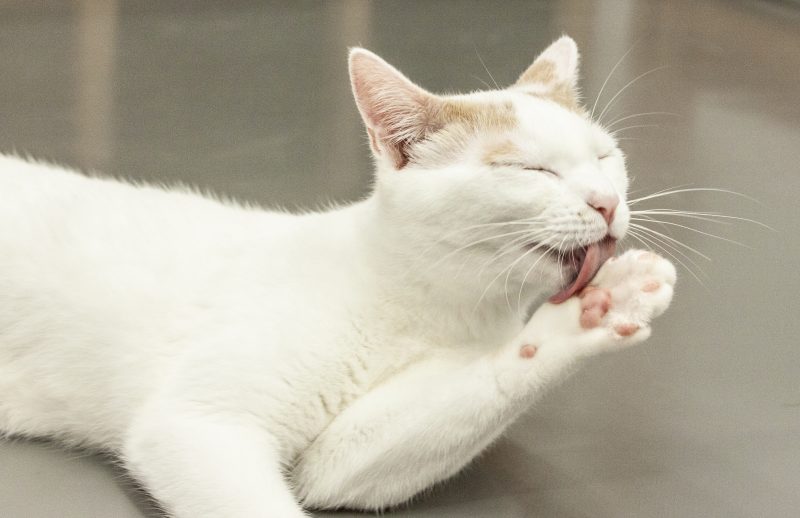For cats who have nowhere to go… Mazda’s in-house club supports conservation activities
The story of Mazda’s in-house ‘Cat Club’ started when Miki Kado, a dog loving employee who worked in Mazda’s Public Relations office in the Hiroshima headquarters building, and a cat loving colleague got together to see if they could help cats and dogs in the huge area of the Mazda plant, docks and wider Hiroshima area.
With the help of a group of volunteers this led to the establishment of “One Meazda Club” in 2018. The following year, in November 2019, it was certified as a ‘Shinwakai Circle’ within the company, and in April 2021, it was certified as a ‘Shinwakai Club’.

Shinwakai Clubs are officially recognised by Mazda as clubs that feature activities rooted in the Hiroshima community and deliver social contribution activities. For example, there are other clubs such as sports clubs that hold classes for children and cheer on local people and local teams.

So from a small gathering of volunteers to a club recognised by the company, the ‘One Meazda Club’ set out to help stray cats found around the Mazda owned land in Hiroshima and also create a network for cats that needed to be rehomed due to owners no longer being able to have them.

The club’s senior supporter is Mitsuo Hitomi, a Senior Innovation Fellow at Mazda: “our goal is to help unfortunate cats and we created a network within the company to aid rehoming, plus we introduced an official blog and in-house newsletters to help the recruitment of foster parents for cats in need of a home”.

Currently 194 Mazda HQ employees are registered to foster cats with others volunteering as caregivers and helpers. With the total Mazda complex in Hiroshima, including the head office, plants and a nearby port covering an area of 1.69 km2 it’s no surprise that in recent years, the number of cats appearing on the premises of Mazda’s Ujina plant had become a problem. With no official department to deal with the situation of cats in the factory, the ‘One Meazda Club’ was called out.


At first, the volunteers helped with Trap-Neuter-Return (TNR) work alongside the general managers of the plant and the health and safety team. In addition some kittens and cats found were adopted thanks to the rehoming efforts of the club.

Mitsuo Hitomi, said: “safety is very important for the company and factory, and I think that this activity has further gained understanding within the company.” Some employees of the factory were assigned the role of protecting cats as part of their duties, and a system was established in which the club was contacted when a cat entered a trap.


The cat club also helps with efforts outside of Mazda – in 2019, a charity bazaar was held at the shopping district summer festival in Hiroshima City. The proceeds were donated to the rescue cat café Neco Republic in the shopping district. It also collaborates with local schools in Hiroshima and carries out activities like a photo contest to promote interaction among club members and to raise awareness of the club.
When asked about his impressions, Hitomi said: “It warms my heart to see the cats being adopted by good people and being loved. The Club transcends the boundaries of employees and company to connect with the local community. Mazda’s corporate vision is to provide people with the brilliance of life through cars, but pets also have something in common in the sense that they bring brilliance to life.”
A community of Mazda employees and friends helping Hiroshima’s dogs and cats – that’s the ‘One Meazda Club.’




